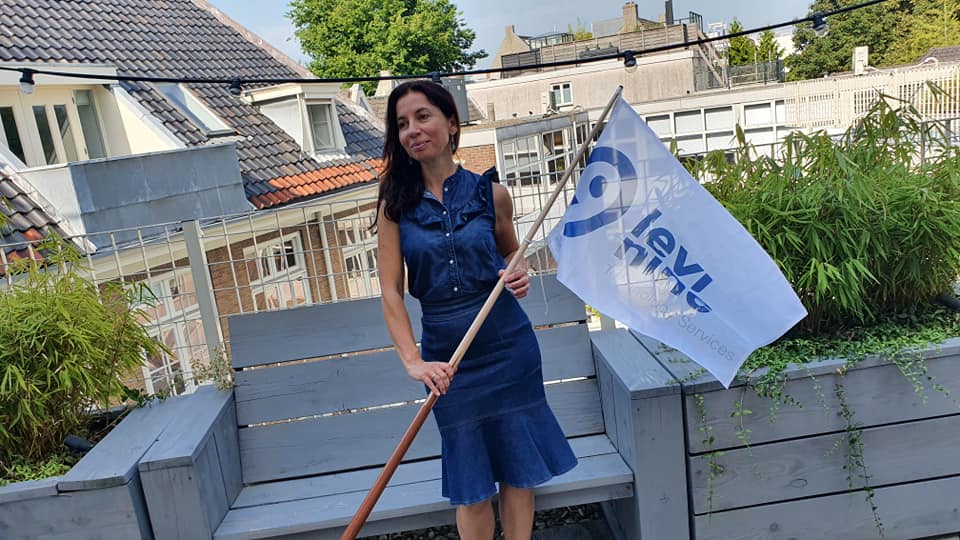In chaos and uncertainty, it is impossible to plan, and established processes fail. Priorities change, and so does the approach to work. During the war, for example, new challenges in recruitment emerged. Candidates are more cautious about offers, and refuse to be interviewed because they have a “new job” in the new job at the front”, and a clear position on Russian aggression and volunteerism have become a competitive advantage. Based on her experience, Yevheniia Cherednychenko explains what has changed in working with candidates, what professional specialists want, and where recruitment is heading in the future.
In the first month, some IT professionals in Ukraine were cautious about making any changes. This had an impact on companies’ recruitment activities. Levi9, for example, saw its recruitment rates by around 40% but managed to return to pre-war levels within three weeks.
5 recruitment processes complicated by the war
It has become impossible to communicate with candidates and introduce them to the company culture as before. We are scattered across Ukraine and the world, focused on the safety of our families and trying to bring at least some stability back into our lives. The war has changed us, and it has also affected the process of finding and adapting specialists. From my experience, I have identified the main areas of recruitment that have become more complex:
1. Opening vacancies
Since the outbreak of full-scale war in Ukraine, some European clients, especially those involved in projects with a high focus on data security, have suspended the involvement of Ukrainian developers. This is understandable, but such projects needed to be thawed as soon as possible. Management has been in contact with clients, providing updates on the evacuation and the business continuity plan. During the first month, all specialists and candidates were moved to safe locations, and most were able to return to work by the end of March. However, most customers waited until 9 May to present their management with an updated plan for cooperation with Ukrainian offices.
2. Searching for candidates
Nowadays, when searching for candidates, we are faced with new reasons for refusing further communication, such as mobilization, relocation abroad, and “immersion” in volunteering. For example, a candidate on LinkedIn responded to a job ad with a photo of himself in a trench and in response to a job offer and wrote that he had a new job during the war and would be happy to pick up the conversation after victory. There are also geographical restrictions on the processing of candidates, as they have to be in safe places.
At the same time, there have been no more refusals. On the contrary, because of the war and the economic crisis, there are more candidates applying for jobs themselves.
After a successful interview, they accept the offer.
3. Job interviews
Air raids and the anticipation of them disrupt interviews and the ability to tune in and interrupt conversations in the middle of them. In addition, during the first weeks of the war, it was difficult to find technical interviewers, as team members were on their way to safety, in active combat zones, or had joined the Army and the ATO.
4. Job offers
Many IT companies have been forced to restructure their teams. As a result, half of the candidates I speak to cite redundancy or project cutbacks as the reason for their looking for a new job. To reduce the number of people on the bench, we send out an offer of employment only after the client has confirmed that a new team member will be added. Otherwise, we need a guarantee that they will get a place on a commercial project in the near future.
5. Adaptation
This seemed to be the most difficult challenge, but it is only slightly more complicated. After more than two years of the COVID-19 pandemic, we have become of adapting to force majeure, so we are already hardened. In the beginning, we did the onboarding online, but now we meet live. Colleagues in Kyiv and Lviv spend the first working day with the newcomers in the offices and “initiate” them to the Levininers.
What candidates expect
The priorities and factors for choosing a job have not undergone significant changes over the five months of war. Similar to peacetime, candidates pay attention to the level of compensation, the project team, their preference for technologies that interest them, and, most importantly, they consider full-remote cooperation.
However, candidates’ attitudes toward companies have evolved. Currently, 45% of professionals believe it is important to see a company’s position on the war in Ukraine. The question of cooperation with Russia interested candidates even before the full-scale invasion, but now they are not considering companies with offices and customers in Russia. While benefits are not the decisive factor in accepting an offer, candidates are primarily interested in basic conditions such as vacation and sick leave, as well as the format of cooperation.
Despite the market situation, salary expectations voiced by candidates remain high. Interestingly, our internal research indicates that expectations for QA engineers have even increased. Nevertheless, this doesn’t concern us since we are now receiving a larger pool of professionals applying for vacancies, allowing us to find the most experienced candidates for specific projects.
The ability to build mutual trust and find compromises in challenging situations has become crucial for successful recruitment.
For instance, at Levi9, one of our clients requires a test task for management positions, which poses a challenge in retaining candidates. In response, we have decided to provide financial compensation for the time spent on the test, even if the candidates fail. As a result, candidates become more loyal, with 90% of them completing the process and staying with us until the results are announced.
Despite our efforts to foster loyalty, retaining candidates has not become easier. If a candidate is interested in a project, they will accept the offer. However, if it fails to meet their expectations or a better offer arises, they cannot be retained. While we have managed to engage such specialists in cooperation, their interest wanes quickly. This contradicts Levi9’s policy of building long-term relationships with the team, resulting in only motivated individuals joining us.
The future of recruitment
Despite the challenges of business restructuring, the situation in the IT labor market is gradually improving. Companies are resuming their pre-war work rhythm, adapting development strategies, and continuing ongoing projects. Consequently, the number of candidates actively seeking employment has increased by 22% since mid-March, primarily driven by project seekers. This trend has persisted into July, with the number of candidates surpassing the number of open positions. Nevertheless, in our experience, you still have to fight for a good candidate.










